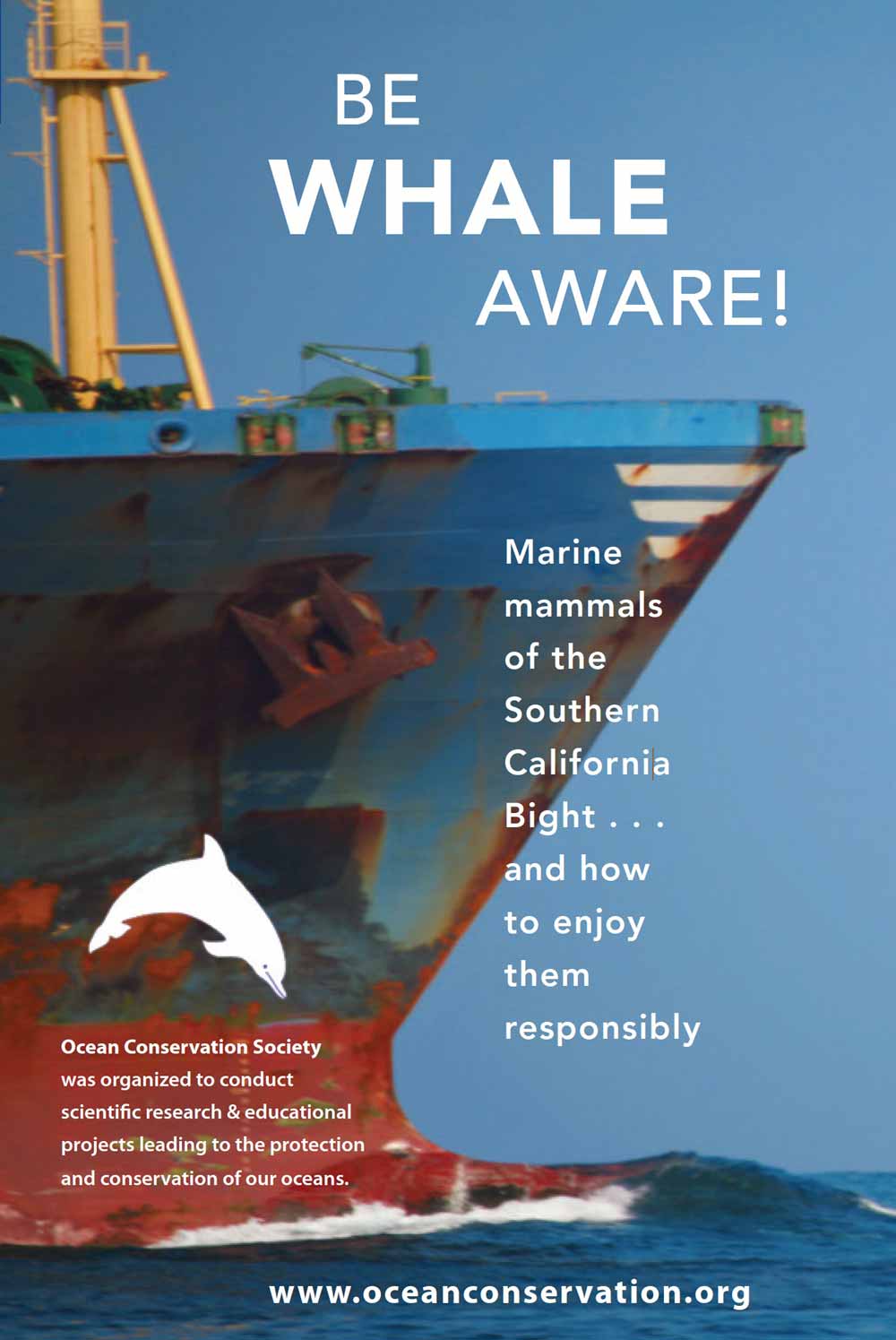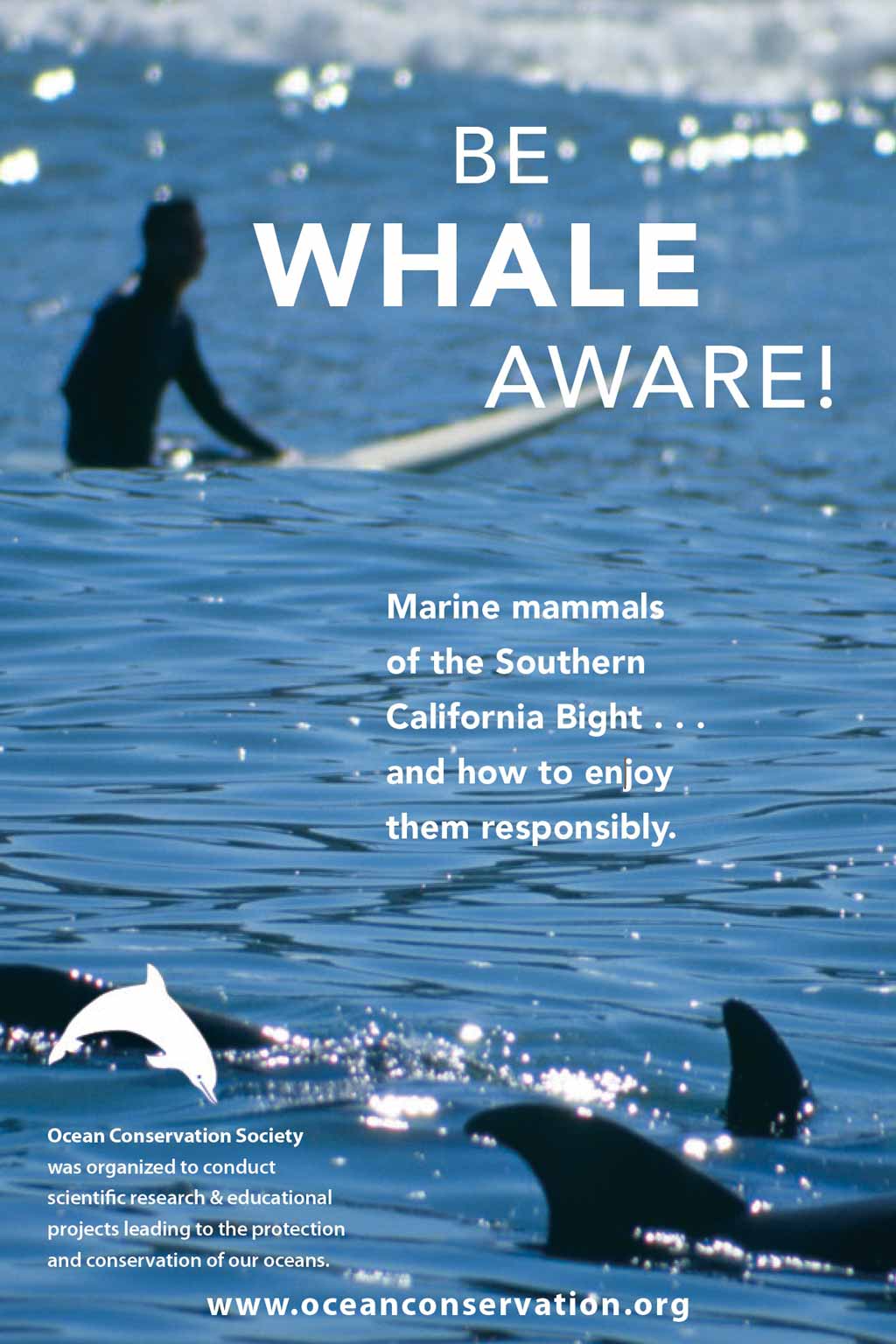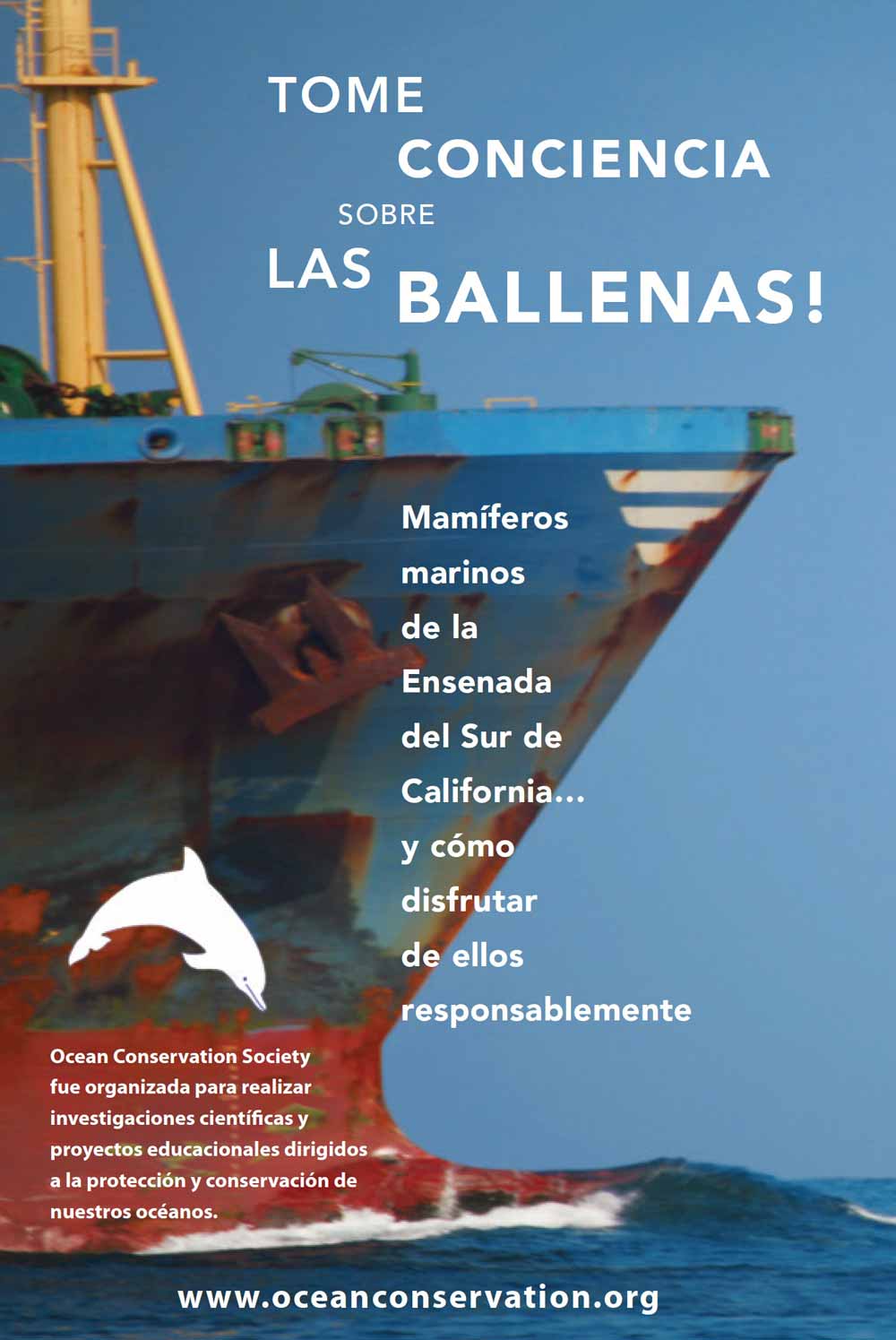BE WHALE AWARE
How to responsibly observe marine mammals
in the wild & report harassment
The goal of the OCS Be Whale Aware campaign is to teach everyone how to safely observe marine mammals, and who to contact in case of an encounter with an injured, distressed or harassed animal. By being more aware, we can minimize our impact and be respectful of these protected species while enjoying their presence, now and for generations to come.
Ocean Friends in Danger
The Southern California Bight includes coastal Southern California, the Channel Islands and surrounding waters. It’s frequented by one of the largest populations of marine mammals in the world – up to 30 different species! Endangered blue whales and other species like humpback, grey, minke and fin whales travel nearshore through this area to feed, attracting large crowds of people who want to see them first-hand. However many boaters don’t know marine mammals are federally protected or that getting too close to them may cause unintended harm.
Human Threats to Marine Mammals
Climate change, habitat degradation, pollution, incidental catch and overfishing are among the biggest human threats affecting marine mammals today. Off California, ship strikes are one of the causes of death for endangered and vulnerable whale populations, and recreational boaters can also accidentally kill or injure marine mammals when getting too close. Even unintentional disturbance can change the normal behavior of whales and dolphins during feeding, mating and other essential activities, threatening their ability to survive in the wild.
Marine Mammals are Federally Protected
Cetaceans (whales, dolphins, porpoises) and pinnipeds (sea lions & seals) are protected under the Marine Mammal Protection Act of 1972. Boaters, jet-skiers, kayakers, surfers, swimmers – and anyone at sea – need to pay careful attention when approaching them. It’s a violation of federal law to harass them, and penalties can include up to a year in prison and fines of up to $20,000.
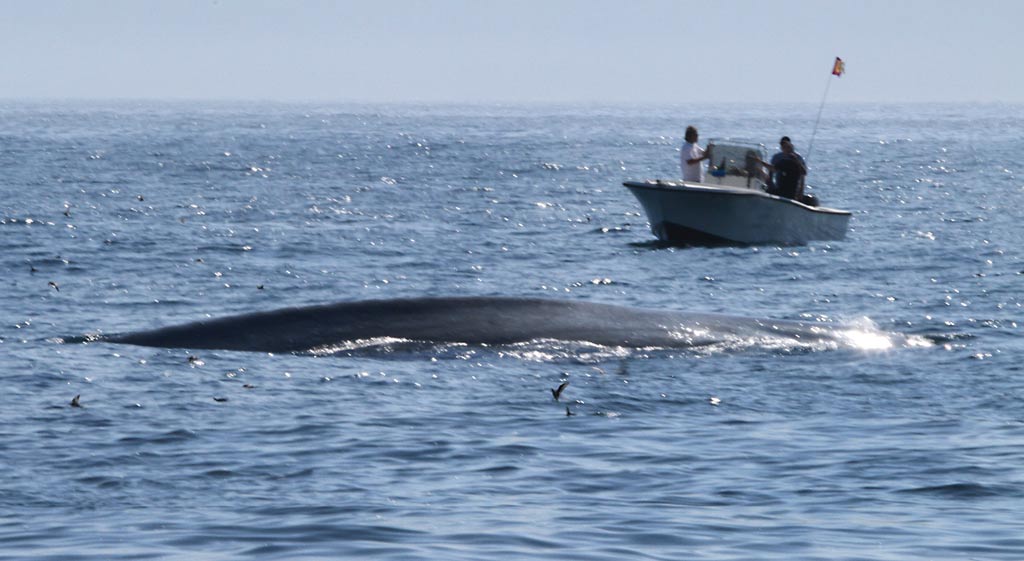
OBSERVATION GUIDELINES
Marine mammal viewing guidelines for boaters, surfers, kayakers & swimmers
Viewing Guidelines for Boaters
Help protect marine mammals while enjoying recreational activities like boating. You can reduce death, injury and stress for whales, dolphins and sea lions by following and sharing these rules:
How close can my boat get to marine mammals?
Cetaceans (whales, dolphins and porpoises):
Remain at least 100 yards (300 feet) away
Pinnipeds (sea lions and seals):
Remain and at least 50 yards (150 feet) away
How do I safely observe marine mammals?
Ensure your actions do not cause any change in their behavior:
• Upon sighting marine mammals, stop your vessel, observe which direction they are moving, and then attempt to parallel their course
• NEVER follow behind, approach animals head-on, encircle or trap them between your vessel and shore – see diagram on this page for more info
• If you are on a boat and whales or dolphins approach you, maintain your course and speed. If the animals cut your course, put the boat in neutral and wait until they clear your vessel
• Avoid sudden changes to your boat’s speed and direction. Dolphins and whales may surface unpredictably at any time or location
• NEVER feed, touch or ride marine mammals – it is against the law!
How long can I observe them for?
Marine mammals need our help to survive and thrive, so limit your viewing time to less than 1/2 hour. Do not crowd the animals to avoid creating unnecessary stress for them.
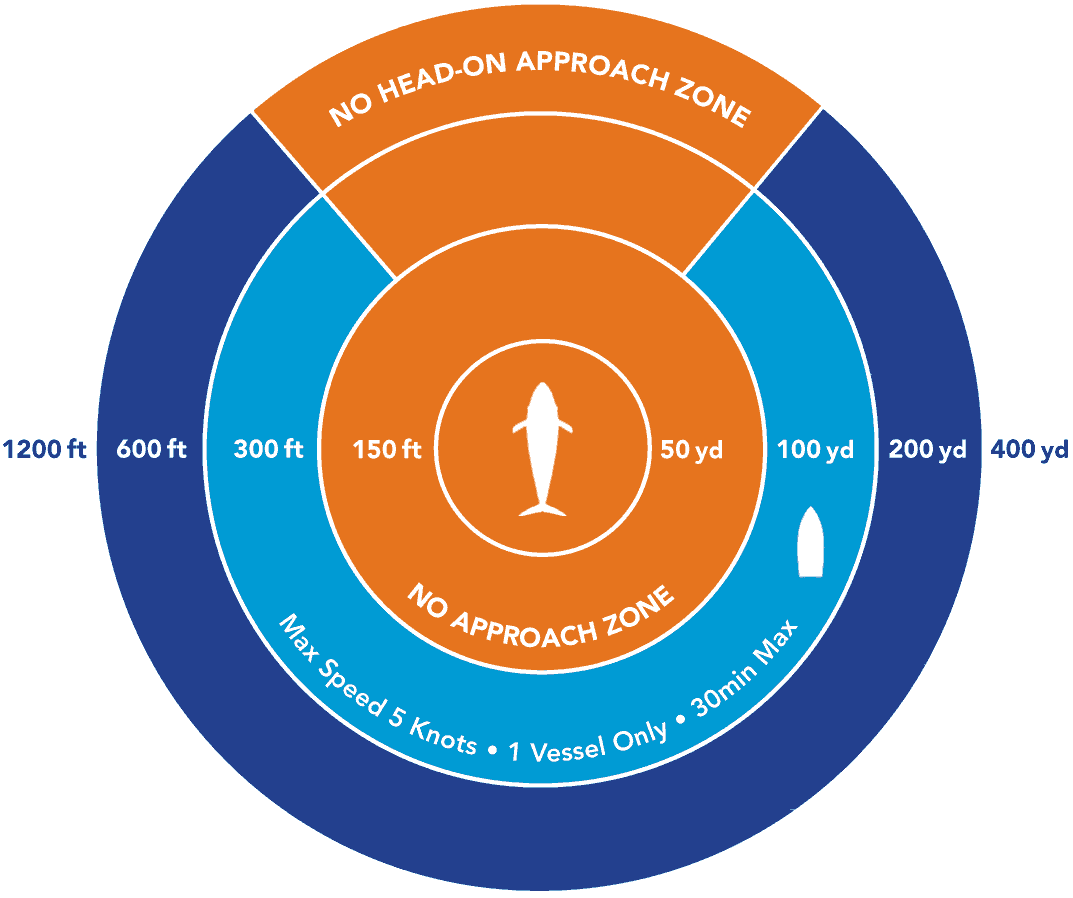
Guidelines for Swimmers, Surfers & Kayakers
It’s important to remember that marine mammals need their space, even if they approach us! Special precautions must always be taken to avoid disrupting their natural behavior in the wild:
How close can I get to marine mammals?
You should attempt to remain 100 yards (300 feet) from marine mammals while swimming, surfing, paddle boarding or kayaking. If you cannot avoid them by staying 100 yards away, do not chase them, move into their path, or move between them when there are more than one.
How do I safely observe marine mammals?
• Ensure your actions do not cause any change in their behavior. Disturbance is any interference with an animal’s ability to hunt, feed, communicate, breed, socialize, rest, or care for its young
• Upon sighting marine mammals, stop at a safe distance and observe. NEVER follow behind, approach animals head-on, or try to encircle them
• Avoid sudden changes in speed and direction. Dolphins and whales may surface unpredictably at any time or location
• Cetaceans (whales, dolphins and porpoises) are friendly and might approach you while you are in the water. Feeding wild dolphins – or swimming with them – can disrupt their natural activities and threaten their ability to survive in the ocean
• Cetaceans are wild animals and can also harm people if harassed or annoyed. Don’t risk injury by getting too close!
How long can I observe them for?
Marine mammals need our help to thrive, so limit your viewing time to less than 1/2 hour. Do not crowd the animals to avoid creating unnecessary stress for them.
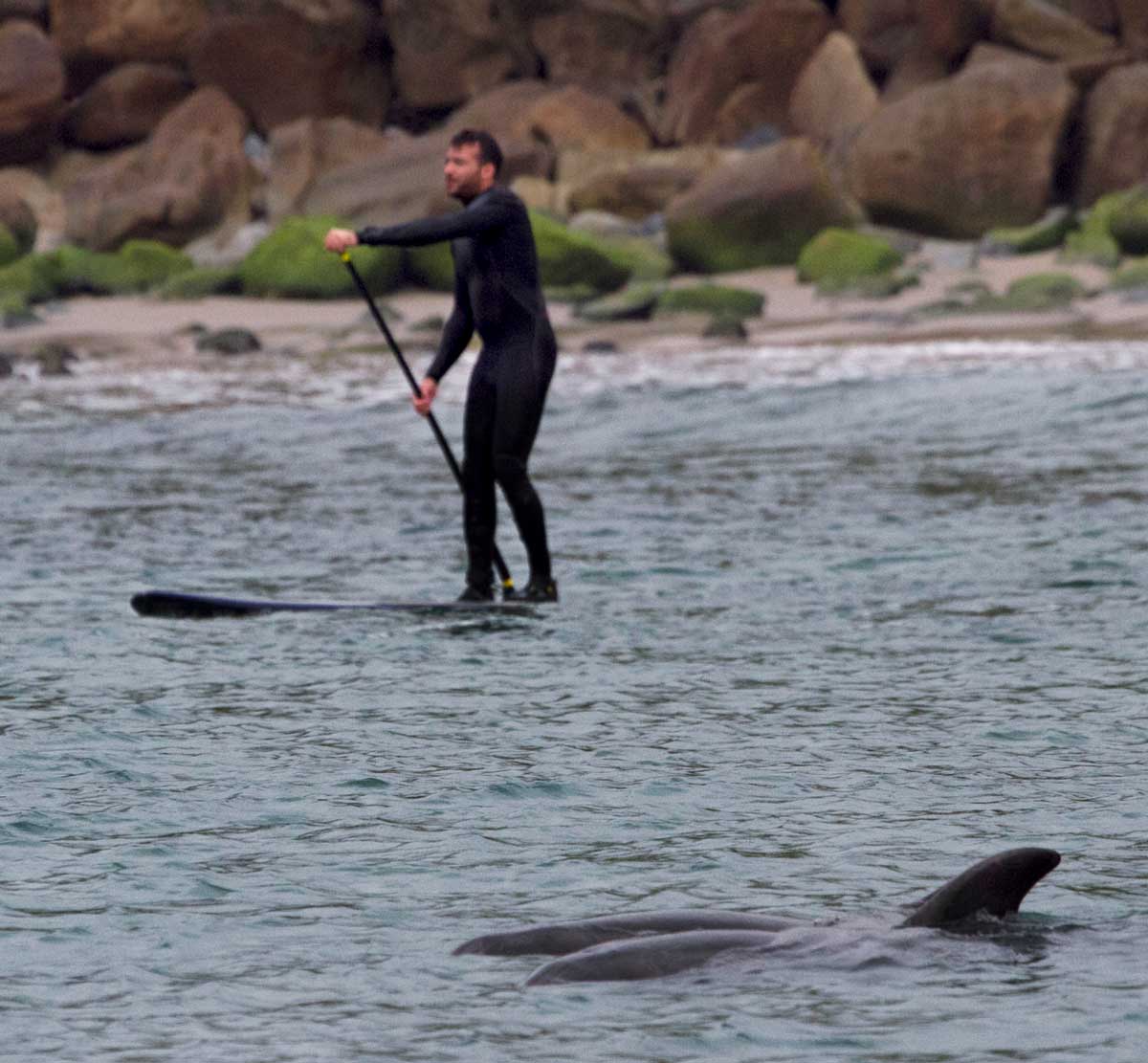
TAKE ACTION!
Download & share our free marine mammal observation guides
FOR BOATERS
SWIMMERS / SURFERS
EN ESPAÑOL
SUPPORT THIS CAMPAIGN
Help the Be Whale Aware campaign to continue and expand
We urgently need funding to update and print more Be Whale Aware Guides for the 2024 / 2025 seasons. Guides are distributed by a 100% volunteer staff to maximize the impact of your tax-deductible donation. We also seek financial help to expand our Be Whale Aware media-based educational campaign.
Protect whales and dolphins during your lifetime and for future generations. Help us educate as many people as possible on how to responsibly view marine mammals and “Be Whale Aware”!
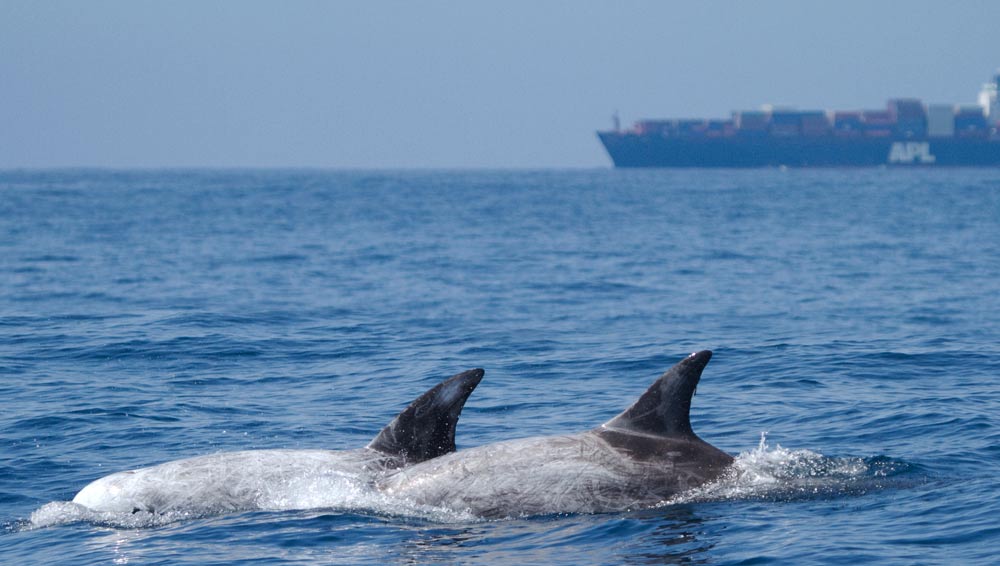
REPORT WILDLIFE IN DISTRESS
Report marine animals who are injured, stranded or being harassed by people or boats
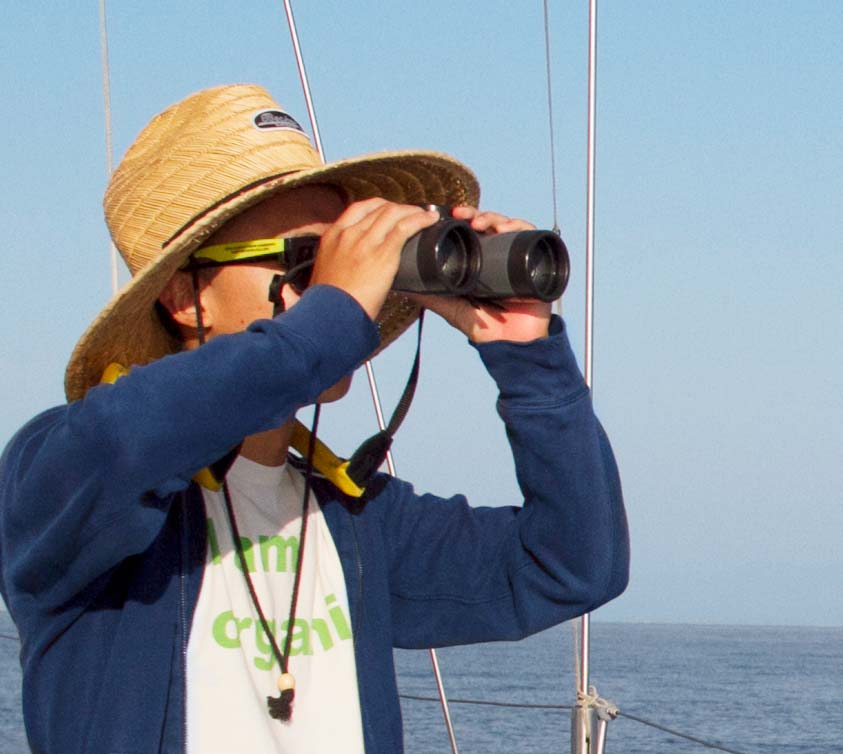
Harassment of Marine Mammals
(800) 853-1964 NOAA Fisheries’ Enforcement 24-hour Hotline
Boaters can use VHF channel 16 to contact local authorities
What is considered harassment?
Under the 1992 Marine Mammal Protection Act, harassment is defined as any act of pursuit, torment, or annoyance which:
• Has the potential to injure one or more marine mammal in the wild
• Has the potential to disturb one or more marine mammals in the wild by causing disruption of behavioral patterns, including, but not limited to, migration, breathing, nursing, breeding, feeding, or sheltering.
Advocate for marine life by reporting harassment!
Injured or Stranded Marine Mammals
(866) 767-6114 West Coast Region Stranding Hotline
What can I do until help arrives?
Immediately report the sighting to the proper authorities. Be sure to stay at safe distance from the stranded and/or injured marine mammal. Avoid touching and feeding the individual, and try keeping other people, dogs and seagulls away. Please remember that a marine mammal can carry diseases and even be dangerous.
Entangled or Ship-Struck Whales
(877) SOS-WHAL 24/7 Entanglement Reporting Hotline
Boaters can use VHF channel 16 to contact local authorities
What can I do until help arrives?
Immediately report an entangled or ship-struck marine mammal to your local stranding network. These networks are located around the country in all coastal states. Whales struck by vessels are often seriously injured or killed.
Additional Wildlife Rescue Resouces
View the complete list
Marine Animal Rescue
El Segundo, CA
Entangled or beached whales, dolphins, seals, sea lions and sea birds along the California coast
(800) 39-WHALE Emergencies in Southern California
(310) 455-2729 Non-Emergencies
_____________
Marine Mammal Care Center
San Pedro, CA
Offers rehabilitation for marine animals (mostly sea lions and seals) found along the Southern California coast
(310) 548-5677
_____________
The Marine Mammal Center
Sausalito, CA
Rescue and rehabilitation of sick and injured marine mammals
(415) 289-SEAL 24-Hour Hotline for California
_____________
Pacific Marine Mammal Center
Laguna Beach, CA
Rescue, rehabilitation, and release of marine mammals stranded along the Orange County coastline
(949) 494-3050
_____________
Northcoast Marine Mammal Center
Crescent City, CA
(Humboldt & Del Norte Counties)
Rescues and rehabilitates stranded, sick, and injured marine mammals so they can be released back into the wild
(707) 951-4722 Marine Mammal Rescue Hotline
______________
West Coast Marine Mammal Stranding Network
Report a dead, injured, or stranded marine mammal along the west coast of the United States
(866) 767-6114
_____________
Rescue Stranding Network
(For other coastal regions)
• Check the Stranding Network page and choose your region to report stranded or injured marine mammals
• NOAA Dolphin and Whale 911 app can also be used
• Other organizations are also members of the marine mammal stranding network. Because this list changes over time, please refer to the National Marine Fisheries Service Stranding Network Participant page for the latest updates
______________
California Wildlife Center
Malibu, CA
Rescue and rehabilitation of native California species including birds, deer, coyotes, squirrels and other terrestrial animals
(310) 458-WILD Hotline
______________
California Academy of Sciences /
Marine Mammal Stranding Network
Strandings in the San Francisco Bay area only (click link above for more info)
______________
CAS Department of Ornithology and Mammalogy
(415) 379-5381 Dead marine mammals
marinemammals@calacademy.org
OCS SOLUTIONS
Actively involving the public in whale and dolphin conservation
300,000+
boaters and watersport enthusiasts reached by our Be Whale Aware Campaign in California
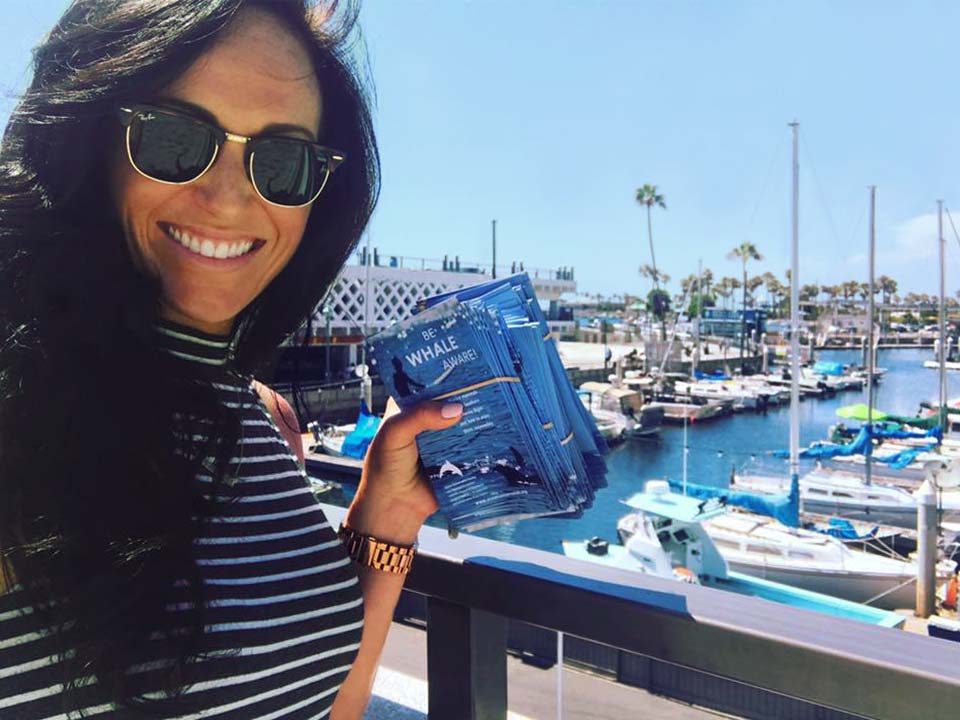
About the Be Whale Aware Campaign
Because the primary mission of OCS is to protect marine mammals, we created the Be Whale Aware campaign to help boaters and other wildlife enthusiasts understand how to behave in their presence. We publish a free, pocket-sized guide illustrating safe observation techniques, and explaining which marine mammals are present in our waters and how to identify them. We’ve also conducted presentations and a media campaign to make the public more aware of the marine mammals living in their area.
When we started this campaign in 2012, we found that boaters were generally unaware of regulations regarding marine mammal encounters at sea. We also discovered that once they learned about the Marine Mammal Protection Act (MMPA), their compliance with regulations improved.
In recent years, our campaign has expanded to include an updated printed guide for boaters – (in English and Spanish), a new guide for swimmers, surfers, paddle boarders and kayakers, and informative stickers for boating enthusiasts.
We hope to continue this campaign with your financial support.
Campaign Goals
• Promote awareness of marine mammal species frequenting Southern and Central California waters (from Morro Bay to Chula Vista)
• Promote safe viewing of marine mammals by informing commercial & recreational boating and water sport communities of regulations regarding harassment of cetaceans and pinnipeds set forth under the Marine Mammal Protection Act of 1972
• Provide presentations to stakeholders and others in the commercial and recreational boating and water sport communities of Central and Southern California
• Build relationships with private sector marine stores, fishing shops, whale-watching operators, yacht clubs, aquaria, surf & kayak stores to promote stewardship of marine life & habitat
• Approach sea scouts, outrigger groups, beach communities, boating and school clubs to stimulate ocean conservation projects through presentations on marine mammals, regulations and conservation
Be Whale Aware for Your Business
We’ve distributed Be Whale Aware guides and stickers from Morro Bay, CA to the Mexican border to 1,000+ locations including: yacht clubs, surf / kayak / sportfishing stores, NGOs, aquaria, whale-watch operators, boating schools, fuel docks and more.
If you’re also interested in encouraging stewardship of marine life by displaying and/or distributing our free, Be Whale Aware pocket guides, please contact us.
Volunteer with OCS
Are you passionate about ocean conservation and interested in helping OCS with our Be Whale Aware Campaign for the coastal Southern and Central California regions? Please contact us.

